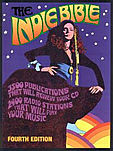
The Place to Post Your Original Tunes!

A
R
T
I
S
T
P
A
G
E

The
Indie Bible
Promote
your music to the world!
 |
ETNIC |
| UPLOADED SONG(S): | |
|
1. “Blestem (The Curse)” [MP3] [REAL AUDIO] “In January 2004, Etnic made another album, named Blestem (‘The Curse’), after the play named that way. The lines of this song represent her love turned into hate, when she found out that her lover was cheating her.” |
|
| LISTENER FEEDBACK: | |
|
None submitted |
|
| ARTIST BIOGRAPHY: | |
|
The musical debut of the singer does not coincide with her first EP, called Sunt o fata frumusica (“I'm A Pretty Girl”). The story of this wonderful voice, Elisabeta Catalina Stroe starts at the age of 4. Endowed with a special voice, little Betty was directed by her elder brother and her mother to the “Allegretto” chorus, where she soon began to sing independently and accompanied by the group of children. At the same time, Betty joined the “Romanasul” Folk Assembly, where she was also given the part of the leading singer, even if her colleagues were 20- 30 years old. As a member of “Allegretto” and “Romanasul” assemblies, she participated in different festivals and musical contests, in most of which she won the first prize. In the fifth grade she starts studying the panpipe at “Dinu Lipatti” High School, which she gave up four years later to join the folk singing class. Her first festival - contest abroad was in Ucraina. It was a two section event - folklore and light music. Betty participated in both and, before awarding the prizes, she was called behind the scene to choose only one of them... As the folklore was her favourite, Betty prefered this section trophy. In 1994, she participated in the Pupils Folklore Festival “Alutus” in Ramnicu Valcea, where she got the first prize in the interpretation section. Then, some other festivals followed - in Hungary, Bulgaria, Greece, Albania, Macedonia, Turkey and Jordan. She first appeared on TV on the national channel in the children contest “Tip-Top Minitop,” which was very popular in Romania. She sang a folk song - “Mi-o zis mama ca mi-o da” (“My mother told me she would give me...”) and, of course, she won the 1st prize again. In every show or festival, Betty used to “conquer” the audience through the innocence given by her age, so young in those days, and through her absolutely special way of singing. When she entered “Dinu Lipatti” Music High School, Betty decided to start her “solo” musical career; so, in august 2001, Elisabeta Catalina Stroe signed a management agreement with RBA Records and Management. From now on, her stage name will be Etnic. Immediately after that the preparations for her first EP began, which appeared in January 2002. The EP was called Sunt o fata frumusica (“I'm A Pretty Girl”) and was brought out on the 17th of January, when the singer reached 16. The two events were celebrated in the “Why Not?” disco. Due to this EP, the artist got the trophy for “the best sold debut album” at the RBA Festival, in December 2002. A year after this EP, Etnic makes another album, Primul Sarut (“The First Kiss”), which proves her musical maturity through her new singing, clear voice and her naturalness in approaching tonalities. The album contains twelve songs which are full of energy and base on the same musical genre - etno. They all are, in fact, new arrangements of some folk songs, very well known by all the Romanians. In January 2004, Betty came of age, so, she changed her style a little bit. She made another album, named Blestem (“The Curse”), after the play named that way. The lines of this song represent her love turned into hate, when she found out that her lover was cheating her. As, a lot of Romanians have forgotten that folk art is a way of expressing individual feelings which man communicates to his fellows only in certain circumstances and unique occasions, RBA Records tried to enrich the spiritual world of people with songs to “go to their hearts,” to make them happy when listening to these songs sung by Etnic. The single chosen to be promoted was “Bade, palarie noua” (“You, Lad, New Hat”), a video clip shown on all the channels, be it musical or not. The RBA Autohaus Car Park was chosen as the setting. The film was made at the beginning of December, on an unusual warm day for this time of the year. “How much I enjoyed myself when I had to thing by the fire, because of the heat my make-up started to run down my face...,” Betty told us laughing. All those who like Etnic can find special photographs and a lot of interesting things about her musical activity of the RBA Records, on our site: www.rba.ro. |
|
| WEB SITE(S): | |
| <<<<MORE TECHNO/CLUB ARTISTS | |
A
R
T
I
S
T
P
A
G
E

The
Indie Bible
Promote
your music to the world!
